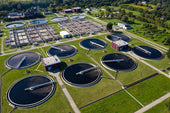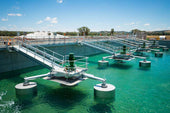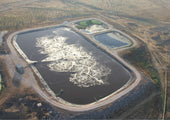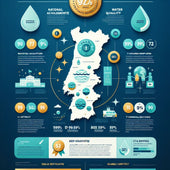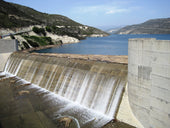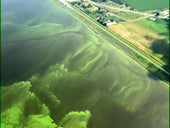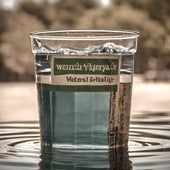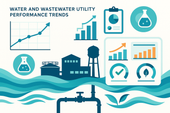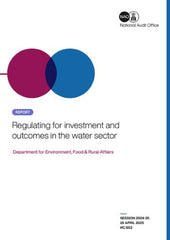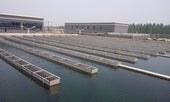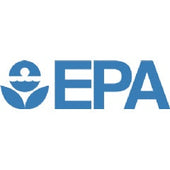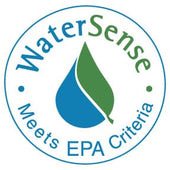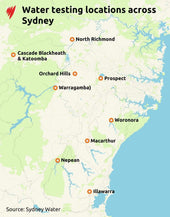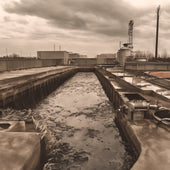
Water sector lauds bipartisan PFAS legislation

The Water Coalition Against PFAS, a coalition of water sector associations whose membership represents all facets of clean and safe water delivery, is strongly supporting the reintroduction legislation that would protect utilities and ratepayers from having to bear the costs of PFAS cleanup.
The Water Systems PFAS Liability Protection Act would provide statutory liability protections for water utilities under the Comprehensive Environmental Response, Compensation, and Liability Act (CERCLA) for per-and polyfluoroalkyl substances (PFAS), ensuring that polluters, not the public, pay for PFAS remediation.
Last year, the U.S. Environment Protection Agency (EPA) formally designated two of the most common PFAS — perfluorooctanoic acid (PFOA) and perfluorooctanesulfonic acid (PFOS) — as hazardous substances under CERCLA. The move puts drinking water and wastewater utilities at risk of being forced to pay a portion of environmental cleanup costs after they legally dispose of water treatment byproducts or biosolids containing the contaminants – and allowing polluters to avoid their own responsibilities. The Water Systems PFAS Liability Protection Act would simply protect innocent water systems from CERCLA liability when they follow all applicable laws for disposing PFAS.
The Water Systems PFAS Liability Protection Act of 2025, sponsored by Reps. Marie Gluesenkamp Perez (D-Wash.) and Celeste Maloy (R-Utah), is identical to bipartisan legislation introduced in the 118th Congress by now-Senator John Curtis (R-Utah).
“The Water Systems PFAS Liability Protection Act will ensure that polluters are held responsible for cleaning up the PFAS they introduced into the environment, rather than water utilities and their ratepayers,” said American Water Works Association (AWWA) CEO David LaFrance. “Introducing this legislation is an important first step toward protecting local communities from having to shoulder the significant financial burden of cleaning up PFAS contamination they did not cause. AWWA looks forward to working with Reps. Gluesenkamp Perez and Maloy to advance this bill, and we urge Congress to support it.”
“Water utilities and their customers should not be forced to pay remediation costs for issues they did not create,” said Ralph Exton, Executive Director of the Water Environment Federation. “We applaud Representatives Gluesenkamp Perez and Maloy for their leadership in championing this critical legislation.”
Without this legislation, the Water Coalition Against PFAS said EPA’s designation of PFAS as hazardous substances under CERCLA would expose drinking water and wastewater utilities to litigation from the manufacturers of PFAS, who can unjustly include water systems as defendants in litigation to reduce their own clean-up costs. This legal loophole could increase costs on water utilities even further – costs that utilities are then forced to pass along to ratepayers. The Water Systems PFAS Liability Protection Act will protect water systems and their customers from the increased costs associated with litigation and potential settlements against PFAS manufacturers and users.
“These utilities are involuntary receivers of PFAS and did not create or profit from PFAS,” added Exton. “However, without congressional action, they could be forced to bear immense financial and operational challenges.”
According to WEF, the Minnesota Pollution Control Agency found that PFAS can be bought for $50 – $1,000 per pound. However, it costs between $2.7M and $18M per pound to remove or destroy from municipal systems depending on facility size.
“The PFAS CERCLA hazardous substance designations threaten the ability of the water sector to deliver affordable water services,” said Adam Krantz, CEO of the National Association of Clean Water Agencies (NACWA). “We need a true ‘polluter pays’ model that holds those responsible for PFAS contamination accountable. Given the ubiquity of PFAS after decades of use – and their ongoing release into our waterways from industrial sites, commercial uses, and household products – broad CERCLA designations instead threaten the financial stability of water utilities all across the U.S.”
Rob Powelson, President and CEO of The National Association of Water Companies added, “The only reason water and wastewater utilities handle and dispose of PFAS is because they are cleaning up after the polluters’ environmental failures. Without Congressional action to protect these utilities, the corporations who profit from the use and manufacture of these PFAS will continue to benefit.”
Full text of the legislation is available here.
Sources: Water Coalition Against PFAS
The post Water sector lauds bipartisan PFAS legislation appeared first on Water Finance & Management.










